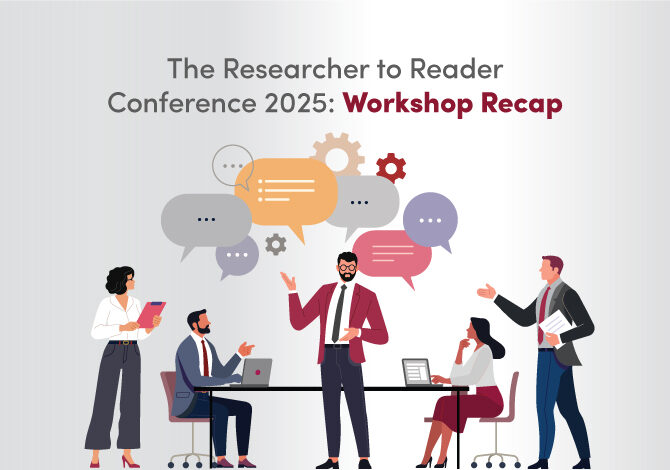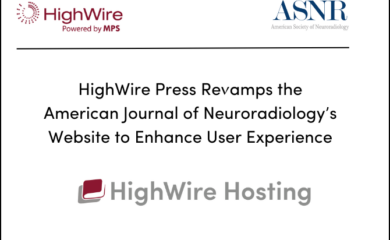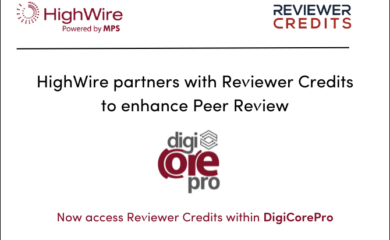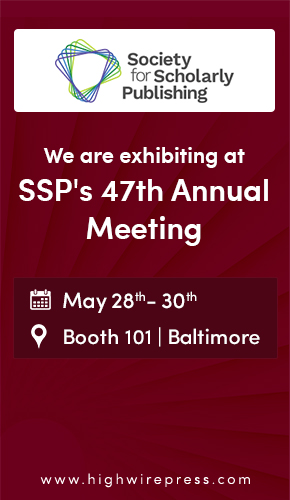Tony Alves, SVP of Product Management, and Joshua Routh, Product Director, recently attended the Researcher to Reader (R2R) Conference at the historic BMA House in London. Designed to bring together researchers, publishers, librarians, and other professionals in the scholarly information industry, the conference fosters dialogue on the evolving landscape of research communication. The general sessions covered a wide range of pressing topics, from research integrity and peer review innovations to open science and metadata standardization. However, the heart of the conference lies in its workshops—interactive sessions that allow participants to deeply engage with specific challenges and collaborate on shared visions and practical solutions. This is the last of four blog posts exploring key discussions and takeaways from the R2R 2025 conference, highlighting insights that are shaping the future of scholarly publishing.
Introduction
Workshops at the Researcher to Reader (R2R) Conference 2025 provided a dynamic space for interactive discussions and problem-solving across a range of key topics in scholarly communication. This year, six workshops (A–F) tackled challenges related to peer review, research communication, integrity, open science, Global South publishing, and researcher support infrastructure. Each session facilitated collaborative exploration of solutions and next steps. Below is a detailed recap of each workshop and its key takeaways.
Workshop A: Peer Review Innovations – Strategies for Implementing Solutions
Facilitators:
- Tony Alves (HighWire Press)
- Jason De Boer (Kriyadocs)
- Alice Ellingham & Elizabeth Hay (Editorial Office)
- Dr. Christopher Leonard (Cactus Communications)
Peer review remains a cornerstone of scholarly publishing, but it also faces persistent challenges related to integrity, efficiency, and professional recognition. In this workshop, participants explored strategies for improving the system, focusing on disincentivizing malpractice, recognizing reviewers’ contributions, and leveraging technology for better verification.
Discussions emphasized the need for a governing body for peer reviewers, which could help standardize practices, establish ethical guidelines, and promote transparency. Another key theme was the lack of formal recognition for peer reviewers—a problem that could be addressed through persistent identifiers (PIDs) that link peer review contributions to individual academic profiles. The potential of multi-factor authentication and centralized databases for reviewer verification was also examined as a way to increase trust in the process.
As a result of these discussions, the workshop proposed piloting a peer review regulatory body and launching trials where reviewers focus solely on methodology and results to reduce workload while maintaining scientific rigor. Participants agreed that these changes could make peer review more sustainable and equitable for researchers. Discussions also explored case studies from open peer review models, highlighting how transparency in the review process improves accountability and trust.
Workshop B: More Power to the Reader – Improving Research Communication
Facilitators:
- Laura Dormer (Becaris Publishing)
- Dr. Joana Osório (Oxford PharmaGenesis)
- Sarah Thomas (Ipsen)
This workshop centered on how to make research findings more accessible to diverse audiences, including policymakers, healthcare professionals, and the general public. Participants acknowledged that complex academic language and formatting often act as barriers to understanding scientific content. To address this, they explored the benefits of plain-language summaries and the use of alternative content formats, such as visual abstracts, audio recordings, and video summaries.
Another key discussion point was the English-language dominance in scholarly publishing. The group emphasized the importance of providing multilingual access to research, particularly for communities that rely on translated materials for medical, educational, and policy-related decisions. Additionally, better metadata and indexing practices were highlighted as crucial for making research more discoverable and ensuring the visibility of corrections and retractions.
The workshop concluded with a call to action for journals and institutions to adopt standardized plain-language summaries, improve multilingual dissemination, and invest in metadata enhancements that promote trust and transparency in scholarly communication. Case studies from major publishers were presented to illustrate successful implementation of these strategies.
Workshop C: Research Integrity – Ensuring Image and Data Integrity in the AI Era
Facilitators:
- Dr. Phill Jones & Dr. Fiona Murphy (MoreBrains Cooperative)
- Dr. Joris van Rossum (STM Solutions)
As AI-generated content becomes more sophisticated, ensuring the integrity of research images and datasets has become an urgent challenge. This workshop tackled the governance, technological solutions, and collaborative approaches needed to combat AI-driven manipulation.
A key concern was who should oversee integrity checks—publishers, institutions, or third-party organizations? While no definitive answer emerged, participants agreed that collaboration across stakeholders is necessary to build an effective verification system. Discussions also explored the potential of automated detection tools to flag manipulated images and datasets before publication.
A major outcome of this session was the proposal for an image and data integrity trust marker, which could function as a certification or quality stamp for verified content. Additionally, a “Springboard Project” was proposed to develop funding models for AI-driven fraud detection technologies. The group recognized that while technological tools are essential, clear governance and accountability measures must accompany these innovations. The STM Integrity Hub’s role in combating image manipulation and AI-driven fraud was also discussed as a key industry initiative.
Workshop D: Open Science in a Resource-Constrained World
Facilitators:
- Godwyns Onwuchekwa (eLife)
- Sara Rouhi & Marc Segers (AIP Publishing)
Open Science holds enormous potential to democratize access to knowledge, but financial and infrastructural constraints often make implementation difficult. This workshop explored how funders, publishers, and institutions can balance Open Science ideals with economic realities.
Participants examined how funders can ensure Open Science maximizes research impact while remaining financially viable. Publishers, on the other hand, discussed how to support Open Science while maintaining sustainability, particularly in fields where paywalls fund essential research infrastructure. Institutions raised concerns about tenure and promotion structures, which often fail to recognize open research contributions.
Rather than pushing for a one-size-fits-all approach, the workshop highlighted the need for flexible, discipline-specific Open Science policies. Participants agreed to continue discussions through Open Science forums and proposed a framework for balancing openness and financial sustainability, which could guide institutions and funders in crafting policies that support broad access to research. The Subscribe to Open (S2O) model was discussed as a promising alternative to APC-funded Open Access.
Workshop E: Enhancing Global South Scholarly Publishing
Facilitators:
- Sarah Phibbs (STM)
- Blessing Mawire (Research4Life)
Scholarly publishing in the Global South faces unique challenges related to infrastructure, visibility, and quality assurance. This workshop focused on strategies to strengthen publishing resources for low- and middle-income country (LMIC) journals and editors.
One of the most pressing issues discussed was the need for a Global Quality Journal Standards Toolkit—a resource that could help LMIC publishers align with international best practices. Participants also stressed the importance of mentorship and peer support programs for journal editors in developing regions.
Infrastructure development was another major focus, with attendees identifying lack of visibility in major indexing services as a barrier to global recognition. To address these concerns, Research4Life proposed launching an editor mentorship program pilot, while stakeholders committed to developing the Global Quality Journal Standards Toolkit to enhance LMIC publishing practices. The workshop concluded with a shared commitment to improving publishing sustainability and accessibility in the Global South.
Conclusion: A Roadmap for Scholarly Innovation
The R2R 2025 workshops demonstrated that while scholarly publishing faces complex challenges, there is a strong collective will to innovate and improve existing systems. Across the six workshops, several key themes emerged. The need for better infrastructure and governance was highlighted in discussions on peer review reforms, Open Science policies, and strengthening Global South publishing. Efforts to create standardized peer review practices, implement regulatory frameworks, and develop quality assurance tools for LMIC publishing illustrate how governance structures must evolve to maintain trust and integrity in research dissemination.
Technology’s role in combating misinformation and ensuring research integrity was another dominant theme. Workshops on AI-driven image manipulation detection, trust markers, and data verification reinforced the necessity of integrating automated fraud detection tools and metadata enhancements into publishing workflows. The STM Integrity Hub’s ongoing initiatives, including the use of CUSAP (Content-update Signaling & Alerting Protocol) for automated retraction tracking, were recognized as promising steps toward maintaining research transparency.
Accessibility and sustainability also emerged as a major discussion point. The More Power to the Reader and Open Science in a Resource-Constrained World workshops explored ways to enhance public engagement with research through plain-language summaries, multilingual dissemination, and diverse content formats. However, the challenge remains in ensuring that Open Science policies are financially sustainable, particularly for smaller publishers and institutions. The Subscribe to Open (S2O) model, which offers an alternative to traditional APC-funded Open Access, was discussed as one of the most viable solutions.
One of the most compelling takeaways was the emphasis on collaboration between stakeholders—publishers, institutions, researchers, funders, and technology providers must work together to create a transparent, ethical, and efficient research ecosystem. The workshops also underscored the importance of mentorship and capacity-building programs, particularly for editors in the Global South, to bridge disparities in research visibility and publishing standards.
Looking ahead, the hope is that discussions from R2R 2025 will inform policy changes, technological advancements, and collaborative frameworks in scholarly publishing. Many of the proposed solutions, such as peer review pilot programs, metadata standardization projects, and AI-powered fraud detection tools, are expected to see further development in the coming months. As the research landscape continues to evolve, one question remains at the forefront: How quickly can the scholarly community implement these changes to maintain trust and integrity in research?
– By Tony Alves
Read the previous part





